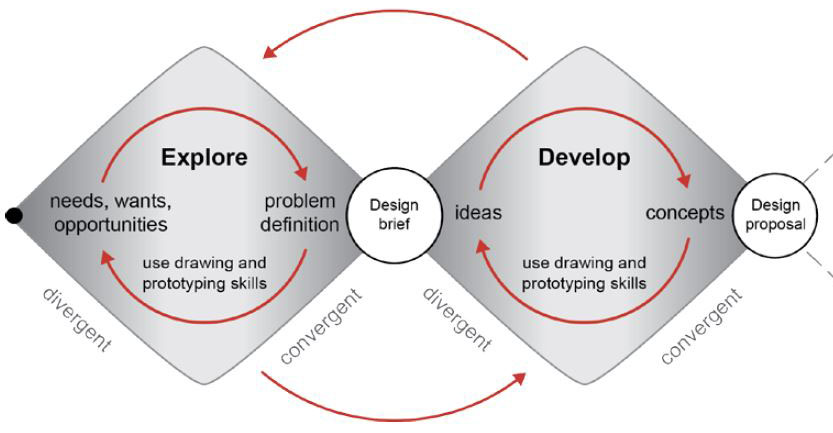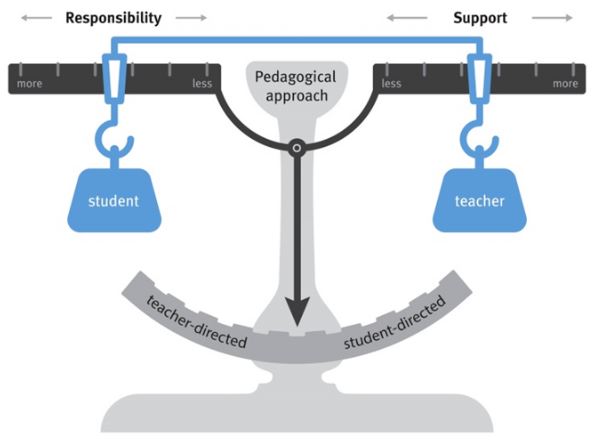How will you Learn?
Teaching and learning experiences will be based around the use of a design process (shown below), which supports the development of problem-based learning approaches.
You will learn about and experience design by:
- exploring needs, wants and opportunities.
- developing ideas and design concepts.
- using drawing and prototyping skills.
- evaluating ideas and design concepts.
|

|
What will you Learn?
You will:
Learn to communicate design proposals to suit different audiences.
Learn how design has influenced the economic, social and cultural environment in which you live.
Understand what causes humans to want to conceive and imagine possible futures through design.
Develop the valuable 21st century skills of critical thinking, creative thinking, communication, collaboration and teamwork, personal and social skills, and a range of new ICT skills.
Develop the collaboration, teamwork and communication skills that are crucial for successfully working in design teams and liaising with all stakeholders.
Develop an appreciation of designers and their role in society.
Learn the value of creativity and build resilience as you experience iterative design processes, where the best ideas may be the result of trial and error and a willingness to take risks and experiment with alternatives.
Studying Design will equip you with highly transferrable, future-focused thinking skills that are more relevant than ever to the world you are now living in. |
Syllabus Objectives (covered in each unit)
by the end of the course you will be able to: |
1 |
describe design problems and design criteria |
2 |
represent ideas, design concepts and design information using drawing and low-fidelity prototyping |
3 |
analyse needs, wants and opportunities using data |
4 |
devise ideas in response to design problems |
5 |
synthesise ideas and design information to propose design concepts |
6 |
evaluate ideas and design concepts to make refinements |
7 |
make decisions about and use mode-appropriate features, language and conventions for particular purposes and contexts. |
Progressing from Units 1 & 2 onto Units 3 & 4 means you take more responsibility for your own work! |
 |
|
